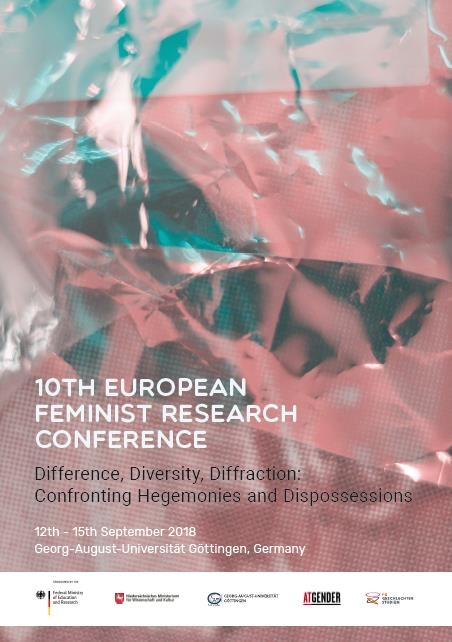Political Representation of Women in Turkey
Institutional Opportunities versus Cultural Constraints
DOI:
https://doi.org/10.17169/ogj.2021.106Keywords:
Political Polarization, Turkey, Majoritarianism, Party System, Women's RepesentationAbstract
This paper analyzes both the descriptive and the substantive sides of women’s representation in Turkey and argues that although the proportion of women politicians in the Turkish Parliament increased from only 4 % in 1999 to 17.6 % in the 2018 general elections, this has not been reflected in an increase in women MPs’ effectiveness. This article mainly argues that as electoral competition increases, women candidates’ chances of being elected decrease. On the other hand, more equal distributions of seats between parties positively influence women’s representation. During the late 1990s and early 2000s, women’s movements and grassroots demands for women’s rights in Turkey, which coincided with the highly welcomed EU accession process, complemented these institutional opportunities to foster women’s representation and break traditional patron-client relations. Overall, however, cultural constraints, such as high polarization between parties and the clash of Islamist and European values inhibit women MPs from cooperating on policies concerning women, and strict party discipline reduces the parliamentary effectiveness of Turkish women politicians.
References
Afshar, Haleh (1998): Women and Empowerment. Illustrations from the Third World. London: MacMillan Press.
Ağduk, Meltem (2000): Cumhuriyet’in Asil Kızlarından 90’ların Türk Kızlarına... 1990’larda bir ‘Türk Kızı’: Tansu Çiller. In: Altınay, Ayşe G. (Ed.): Vatan Millet Kadınlar. İstanbul: İletişim Yayınları.
Arat, Yeşim (1989): The patriarchal paradox. Women politicians in Turkey. Rutherford, N.J.: Fairleigh Dickinson University Press.
Arat, Yeşim (2000): From Emancipation to Liberation. The Changing Role of Women in Turkey’s Public Realm. In: Journal of International Affairs 54 (1), 107–123.
Arslan, Esra (2019) Siyasi Partilerde Cinsiyetin İzini Sürmek. AKP, CHP, MHP ve HDP Örnekleri. In: Fe Dergi 11(1), 59–76.
Atkeson, Lonna R./ Carrillo, Nancy (2007): More Is Better. The Influence of Collective Female Descriptive Representation on External Efficacy. In: Politics & Gender 3 (1), 79–101.
Baç-Müftüler, Meltem (2005): Turkey’s Political Reforms and the Impact of the European Union. In: South European Society & Politics 10 (1), 17–31.
Ballington, Jullie/ Karam, Azza (1998/2005): Women in Parliament. Beyond Numbers. Stockholm: IDEA. https://www.idea.int/publications/catalogue/women-parliament-beyond-numbers-revised-edition
Bari, Farzana (2005): Women’s Political Participation. Issues and Challenges. Bangkok: UN Report.
Berik, Günseli (1990): State Policy in the 1980s and the Future of Women’s Rights in Turkey. In: New Perspectives on Turkey 4, 81–96.
Bird, Karen (2003): The Political Representation of Women and Ethnic Minorities in Established Democracies. A Framework for Comparative Research. Working Paper presented for the Academy of Migration Studies, Denmark.
Burns, Nancy/Kay L. Schlozman/Verba, Sidney (2001): The private roots of publicaction. Gender, equality, and political participation. Cambridge, Mass.: Harvard University Press.
Cansun, Şebnem (2009) Türkiye’de Kadınların Siyasal Katılımının Algılanması. AKP ve CHP Örnekleri. In: İnsan ve Toplum Bilimleri Araştırmaları Dergisi 2 (3), 9–30.
Cizre, Ümit (2002): Tansu Çiller: Lusting for Power and Undermining Democracy. In: Heper, Metin/Sayarı, Sabri (Ed.): Political Leaders and Democracy in Turkey. Maryland : Lexington Books.
Çağlayan, Handan (2007): Analar, Yoldaşlar, Tanrıçalar. Kürt Hareketinde Kadınlar ve Kadın Kimliğinin Oluşumu. İstanbul: İletişim Yayınları.
Çakır, Serpil (2013): Erkek Kulübünde Siyaset. Kadın Parlamenterlerle Sözlü Tarih. İstanbul: Versus Yayınları.
Güneş-Ayata, Ayşe (1994): Roots and Trends of Clientelism in Turkey. In: Roniger, Luis/Güneş-Ayata, Ayşe (Ed.) Democracy, clientelism, and civil society. Boulder, Colo.: L. Rienner Publishers.
High-Pippert, Angela/Comer, John (1998): Female Empowerment. The Influence of Women Representing Women. In: Women and Politics 19, 53–66.
Kalaycıoğlu, Ersin/Toprak, Binnaz (2004): İş Yaşamı Üst Yönetim ve Siyasette Kadın. Istanbul: TESEV Yayınları.
Norris, Pippa/ Inglehart, Roland (2001): Cultural Obstacles to Equal Representation. In: Journal of Democracy 12 (3), 126–140.
Sartori, Giovanni (1976): Party and Party Systems. A Framework for Analysis. New York: Cambridge University Press.
Sayarı, Sabri (1977): Political Patronage in Turkey, In: Gellner, Ernest/Waterbury, John (Ed.): Patrons and Clients in Mediterranean Societies. London: Duckworth, 103–130.
Sayarı, Sabri. (2016): Back to a Predominant Party System. The November 2015 Snap Election in Turkey. In: South European Society and Politics 21 (2), 263–80.
Shvedova, Nadezhda (2005): Obstacles to Women’s Participation in Parliament. In: Ballington, Julie/Karam, Azza (Ed.): Women in Parliament. Beyond Numbers. Stockholm: International IDEA, 33–52.
Sumbaş, Ahu (2020): Gendered local politics. The barriers to women’s representation in Turkey. In: Democratization 27 (4), 570–587.
Tekeli, Şirin (1985): Türkiye’de Feminist İdeolojinin Anlamı ve Sınırları Üzerine. In: Yapıt: Toplumsal Araştırmalar Dergisi 9, 48–66.
Toprak, Binnaz (1990): Emancipated but Unliberated Women in Turkey. The Impact of Islam. In: Özbay, Ferhunde (Ed.): Women, Family and Social Change in Turkey. Bangkok: UNESCO, 39–50.
Turam, Bern. (2008): Turkish Women Divided by Politics. Secularist Activism vs. Pious Non-Resistance, In: International Feminist Journal of Politics 10 (4), 475–494.
Turan, İlter (1984): Ataturk’s Reforms as a Nation and State Building Process. In: Southeastern Europe 11 (2), 169–189.
Yıldırım, Kerem/Kocapınar, Gülnur (2019): Untangling the gender gap. Nomination and representativeness in Turkish local elections. In: Turkish Studies 20 (2), 222–248.
Yaraman, Ayşegül (2015): Türkiye’de Kadınların Siyasal Temsili. İstanbul: Bağlam Yayınları.

Downloads
Published
How to Cite
Issue
Section
Categories
License
All contributions in Open Gender Journal are published under the Creative Commons Attribution 4.0 International license. You may freely make use of the corresponding texts in accordance to the conditions of the license (License contract, generally understandable version). There is no exclusive transfer of usage rights ("copyright transfer"). Open Gender Journal does not charge authors any costs for publication (so-called Article Processing Charges, APC) or submission (so-called Submission Charges). Authors are encouraged to share their contributions in other places, such as repositories.













